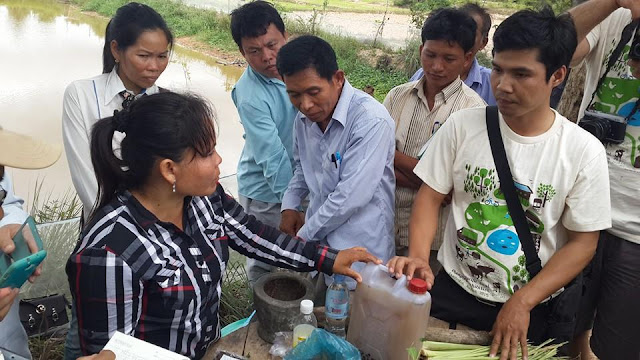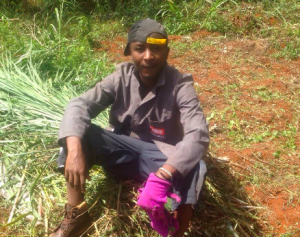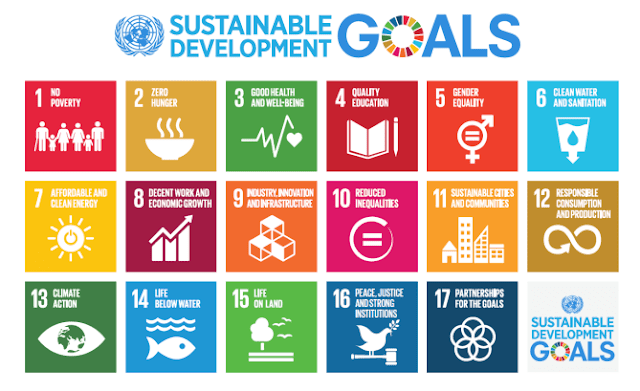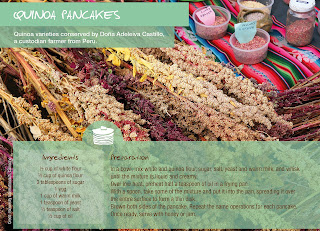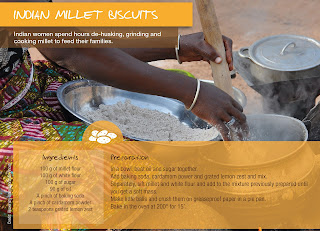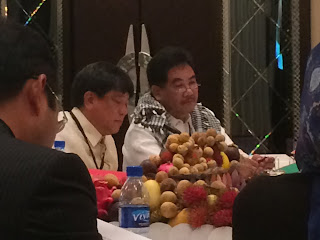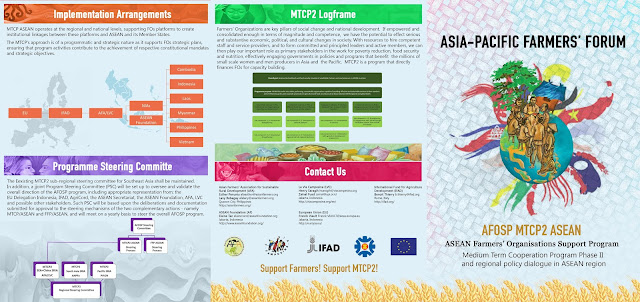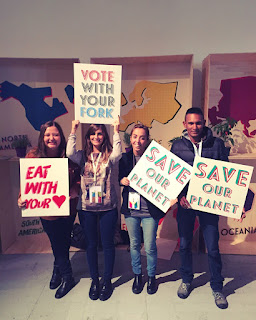By Andrea Listanti![]() |
Immortalizing departure for "Terra Madre Youth"
Photo credit: R. Samii |
On Friday 2 October, 40 young enthusiastic and passionate IFAD colleagues left for “Terra Madre Youth”. They are reporting live so that all of us can follow their extraordinary experience .
We are proud to be IFAD young delegates, even if our badge just says “participant”. We are bringing our voices to Milan, to “Terra Madre Youth” which is taking place in Milan from 3-6 October. The event, organised by Slow Food and Slow Food Youth Network with the support of IFAD, has brought together 2000 young people from all over the world who are engaged and work in food production industry so that together we can find innovative solutions to address global hunger.
Our mantra - “We feed the planet” - is omnipresent. You see it everywhere... It is prominently displayed in the “Superstudio Più” and “Mercato Metropolitano” - the venue for seminars, workshops, public events and shows. We are trying to make the most of all of this, with passion, enthusiasm and the awareness of being part of a present that works for and needs to shape the future.
![]() |
Getting up close and personal
Photo credit: Andrea Listanti |
The first day focused on making connections and meeting people. Everyone was encouraged to connect with other fellow participants and start sharing ideas about sustainable models for future food production systems. IFAD’s fellows, many of whom are interns, had the opportunity to meet young farmers and food producers — our companions - who have benefitted from IFAD-funded projects and programmes in Africa, Asia and Latin America.
To get things going and to break the ice, Joris Lohman, representative of Slow Food Youth Network and member of the Executive Committee of Slow Food International, reminded us that we had all gathered at “ Terra Madre Youth” to “find a new vision and new projects to feed the world”.
![]() |
We made it..... Registered IFAD delegates
Photo credit: Andrea Listanti |
During the Europe Meeting in the Red Room (the main hall of Superstudio Più), a fellow participant from Australia stood up and asked him what can we practically do to achieve this while we are here. Considering that all of us can and are reporters, a good starting point is to share our thoughts and listen to those of others. “As reporters you are collecting bits and pieces from everyone’s experiences to make a story”, Lohman reminded us. This is what we will be doing on a daily basis!
We took advantage of a break to have a look around. There are people from all over the world, different cultures and traditions, indigenous peoples, farmers and more. Some of them are dressed in their traditional costumes. Their colourful outfits beat Milan’s grey weather and give us a sense of relief and excitement.
Food is perhaps one of the best connectors in the world and has the power to bring people together not only in Italy, but globally. So, at lunch, which was rigorously vegetarian, we had an opportunity to get up close and personal with our companions and “twins”.
![]() |
"We Feed the Planet"
Photo credit: Andrea Listanti |
We met Gladys, a 26 year old young lady from Tanzania; Solomon from Ghana and Lywa from Senegal. Gladys has beautiful braids and as we engaged in conversation, we shared with her that we’ve heard Tanzania is an enchanting place, she indulged with a smile and confirmed.
As Italians we consider Parmigiano cheese as one of the most nutrients foods. But to our biggest surprise and chagrin, we discovered that parmigiano was not as appreciated as we would have expected. Many of our companions did not eat it, even though it was perhaps the most nourishing part of our meal.
We got our share of consolation when we saw Solomon and Lywa appreciating Italian coffee! We took a selfie together. “Post it and tag me on Facebook”, they told me. To which I replied, “Will do, don’t worry”.
Solomon, a member of the IFAD-funded Global Youth Innovation Network (GYIN) knows a lot about IFAD-funded activities s in Ghana. “IFAD-funded activities are well designed, the challenge is to engage directly with the beneficiaries, especially young people. A good example is Ghana Agriculture Sector Investment Programme (GASIP), which has a full component on rural young people”, Solomon told us.
![]() |
Let's get the show on the road
Photo credit: Andrea Listanti |
In the afternoon the 'stars' went on stage. The first to speak was Raj Patel. He talked about how the quest to make profits in the food production system has had devastating impact on the environment. “We live in the era of cheap food. Since 1990 food is becoming cheaper, and this food is the industrial food. Food industries make large profits out of it and this has an adverse impact on rural people”.
He continued to tell us that the production of cheap food means exploiting the environment. Patel’s crie de coeur was: “There is no way industrial food can be sustainable. We need to change the global food production system, and in order to do that we need to confront capitalism. We are powerful when we address the powerful”.
After Patel, Carlo Petrini, the Slow Food founder, took the stage. Carlo is an inspiring and passionate speaker . He walked on stage and said : “when I entered this hall and saw all of you, I had the extraordinary feeling that our ideas, our projects and our future is in good hands.”
Carlo’s message to us was while Expo is coming to an end, Milan finally is experiencing engagement. If we join forces, we can bring about change and advocate for an alternative and better food culture.
![]() |
Our vegetarian lunch
Photo credit: Andrea Listanti |
Carlo challenged us and told us: “Our food production system does not work because industrial production asks more than our Mother Land can give. Many people are exploited in order to produce more, and the only people who suffer from the ‘free-market food system’ are smallholder farmers, whose rural communities can no longer sustain themselves. Using the network you care building, YOU must change this productive system”.
The first day ended at “Mercato Metropolitan” with the Disco Soup, a dancing dinner with leftovers of vegetables that would have been wasted otherwise. Music finished what food had started. As the night came to an end, we took stock of the connections made on our first day. And tomorrow we are looking for more inspirations and new connections so that we can start bringing about change.



















